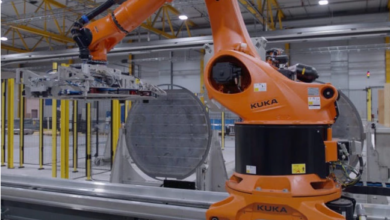Packing materials for valves in hydrogen service

Control valves are an essential component of any system that involves the distribution of hydrogen, as they are responsible for regulating the flow and pressure of hydrogen.
Morten Noppenau, country manager in Askalon Denmark, explains that valve packings play a critical role in maintaining the integrity of fluid or gas distribution systems.
Compressible materials are used to create a leak-proof seal between the valve stem and body, preventing fluid or gas from escaping. The right valve packing selection is crucial to ensure safe, efficient, and reliable operation in various applications.
Emerson™ Fisher™ Enviro-Seal™ and ISO-Seal are two of the most used packing materials in hydrogen service thanks to their high performance and reliability. Their ability to accommodate changes in temperature and pressure, combined with their low friction and flexible design, make them ideal for use in a wide range of process applications.
ISO-Seal is a high-performance mechanical seal designed to meet the demanding requirements of hydrogen service. It features a series of rings made from materials like PTFE or graphite, arranged in a specific pattern to create a barrier between the pressurized hydrogen and the environment. ISO-Seal is known for its low friction, high flexibility, and ability to accommodate changes in temperature and pressure, making it an ideal choice for hydrogen service applications.
Enviro-Seal is a mechanical sealing solution designed for hydrogen service applications with a focus on environmental responsibility. The Enviro-Seal packing is typically made from environmentally friendly materials, such as PTFE or graphite, and is designed to minimize the release of toxic or hazardous substances.
In conclusion, valve packings are a critical component of fluid and gas flow systems, providing a vital seal to prevent leaks and ensure safe and reliable operation.
Various materials are available to suit different applications, each with its own set of benefits and drawbacks. It is important to consider the process conditions such as, temperature and pressure, and compatibility with the valve when selecting the right valve packing.
